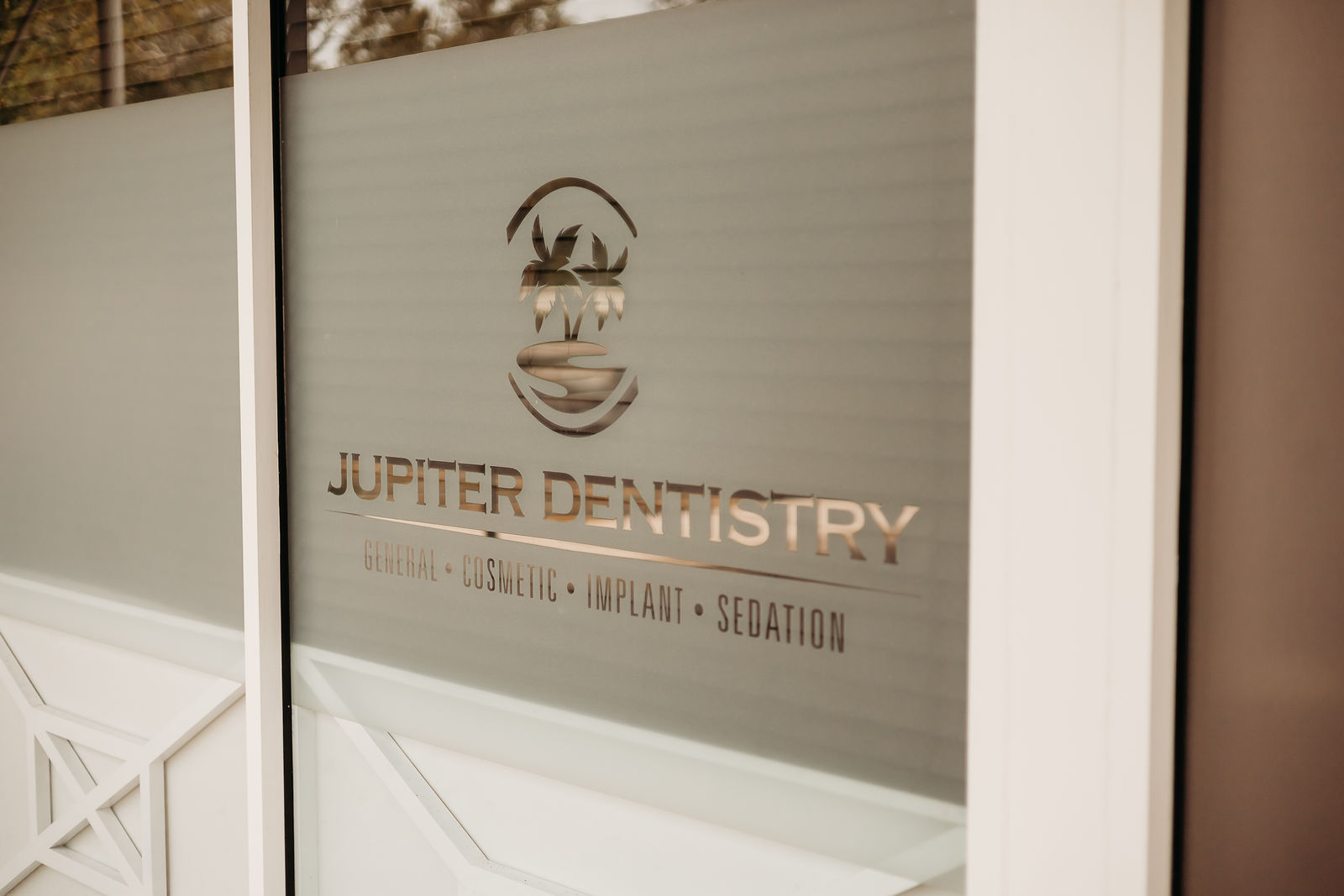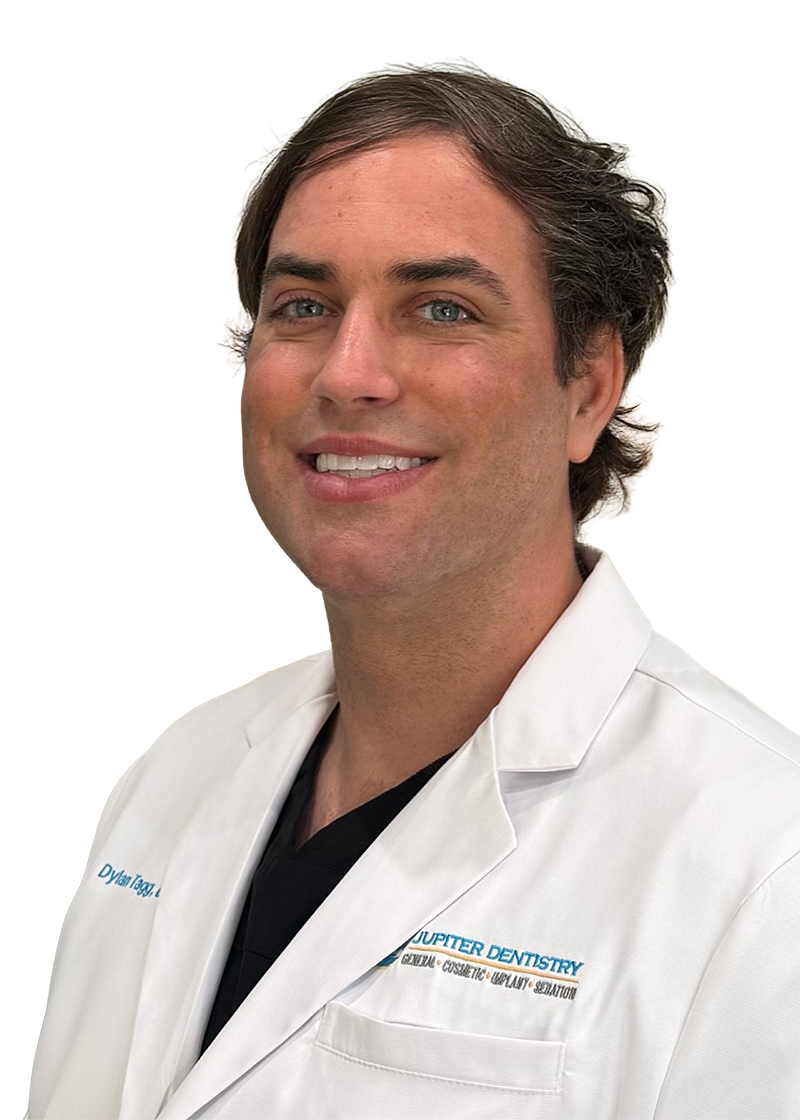Your Dental Implant Can Last a Lifetime


Dental implants are an excellent solution for replacing missing teeth, providing a long-lasting, natural-looking alternative to dentures and bridges. At Jupiter Dentistry, we specialize in dental implant procedures designed to restore both the function and aesthetics of your smile. After receiving dental implants, proper care and maintenance are essential for ensuring their longevity and maintaining your oral health.
If you’re ready to schedule your dental implant consultation and transform your smile, contact our dentist in Jupiter today at(561) 575-5599.
Why Proper Care for Dental Implants Is Crucial
Just like natural teeth, dental implants require regular maintenance to stay healthy and functional. Without proper care, plaque and bacteria can build up around the implant, potentially leading to gum disease, bone loss, and implant failure. At Jupiter Dentistry, we emphasize the importance of a consistent oral care routine to prevent complications and ensure your implant remains in excellent condition.
Our dental team is committed to providing exceptional care for patients with dental implants. Our dentist offers personalized guidance on how to care for your implants, ensuring that they remain strong and functional for years to come. Whether you’re considering dental implants or need assistance with maintaining them, we’re here to help.
How to Care for Dental Implants Daily
Brushing
Brushing your teeth is essential for removing plaque and food particles that can accumulate on and around your implants.
Brush twice a day: Use a soft-bristle toothbrush and low-abrasive toothpaste to clean your teeth and implants thoroughly.
Brush gently: Focus on brushing around the implant crown, as well as your gums, to remove plaque without irritating the tissues.
Consider an electric toothbrush: An electric toothbrush can help ensure a more thorough cleaning, especially in hard-to-reach areas.Flossing
Flossing is crucial for removing food debris and plaque between your teeth and implants.
Floss daily: Use implant-specific floss or traditional dental floss to clean between your implants and natural teeth.
Consider water flossers: Water flossers are an excellent alternative for patients who find traditional flossing difficult. They use a stream of water to remove plaque from tight spaces, providing an effective cleaning without irritating the gums.Using an Antimicrobial Mouthwash
Rinsing your mouth with an antimicrobial mouthwash helps reduce the buildup of bacteria, lowering your risk of infection around the implant site.
Rinse once a day: Choose a mouthwash that’s alcohol-free and designed to target bacteria in the mouth.
Be consistent: Rinse for at least 30 seconds after brushing and flossing to ensure a thorough clean.
Regular Dental Checkups
Regular dental visits are a key component of dental implant care.

- Schedule bi-annual cleanings: Professional cleanings at Jupiter Dentistry help remove plaque and tartar buildup that may be difficult to remove at home.
- Monitor implant health: During your checkups, we’ll examine your implants to ensure they’re integrating properly with the bone and that no signs of gum disease or infection are present.
Common Dental Implant Issues and How to Address Them
Implant maintenance problems can occur despite regular care and maintenance. Here are some common problems and how to address them:

- Peri-implantitis: This is a type of gum disease that affects the tissue around the implant, leading to inflammation and bone loss. Symptoms include bleeding, swelling, and redness around the implant. To treat peri-implantitis, your dentist may recommend antibiotics, deep cleaning procedures, or even surgery in severe cases.
- Loose implant: If you feel like your implant is loose or wobbly, it may be due to a loose abutment screw or implant failure. Contact our dentist immediately for an evaluation and treatment options.
- Broken restoration: The crown, bridge, or denture that is attached to the implant may become loose, crack, or break over time. This can be due to normal wear and tear or physical trauma. Depending on the extent of the damage, your dentist may recommend a repair or replacement.
- Gum recession: Gum recession can occur around the implant, exposing the implant to bacteria and leading to implant failure. Our dentist may recommend gum grafting surgery to address the recession and prevent further damage.
If you’re dealing with any problems with your dental implants, contact our dentist in Jupiter by calling (561) 575-5599.
Nutritional Tips for Dental Implant Patients
Diet plays an important role in maintaining healthy implants and ensuring a smooth recovery after implant surgery.Foods to Eat After the Dental Implant Procedure
- Soft foods: Stick to soft, easy-to-chew foods like mashed potatoes, scrambled eggs, yogurt, and smoothies during the healing period.
- High-protein foods: Incorporate lean proteins like fish and chicken to support tissue regeneration.
- Hydrating foods: Drink plenty of water and eat water-rich foods like cucumbers and melons to stay hydrated.
Foods to Avoid
- Hard or sticky foods: Avoid nuts, hard candies, and chewing gum, which can damage the implant or irritate the healing area.
- Acidic or spicy foods: Foods like citrus fruits or spicy dishes can irritate sensitive gums after surgery.
Frequently Asked Questions
Can I continue to use my regular toothbrush and toothpaste on my dental implants?
Most dentists recommend using a toothbrush and toothpaste specifically formulated for dental implants, as they’re designed to clean and protect the implant post and surrounding tissue without causing damage. Your dentist will recommend the best toothbrush and toothpaste for your specific case.
Does food get trapped under a dental implant?
Since the base of your dental implant is fused with your jawbone, food won’t get trapped under the restoration. Unlike other tooth replacements, dental implants look, feel, and function the most like natural teeth.
Can plaque grow on implants?
Yes, plaque can grow on implants just like it can on natural teeth. Plaque is a sticky film of bacteria that forms on teeth and gums, and if not removed through proper oral hygiene practices, can lead to gum disease and other oral health issues.
Similarly, plaque can accumulate on the surface of dental implants, leading to inflammation and potential implant failure. This condition is known as peri-implantitis and can cause bone loss around the implant.
Can I use regular toothpaste with dental implants?
Yes, but it’s important to choose a non-abrasive toothpaste to avoid damaging the implant’s surface or irritating your gums.
Schedule Your Dental Implant Consultation!
Ready to take the next step in your dental health journey? Contact Jupiter Dentistry today at (561) 575-5599 to schedule an appointment and learn more about our dental implant services. We’re dedicated to helping you achieve a beautiful, healthy smile that lasts a lifetime.


Complimentary Consultation
or 2nd Opinion
- Exam
- Full mouth X-rays
- Private Consultation with Doctor ($350 value)
- 2151 FL A1AAlt #1300,
Jupiter, FL 33477 - (561) 575-5599
- Monday: 8am - 5pm
- Tuesday: 8am - 5pm
- Wednesday: 8am - 5pm
- Thursday: 8am - 5pm
- Friday - Saturday - Sunday: Closed